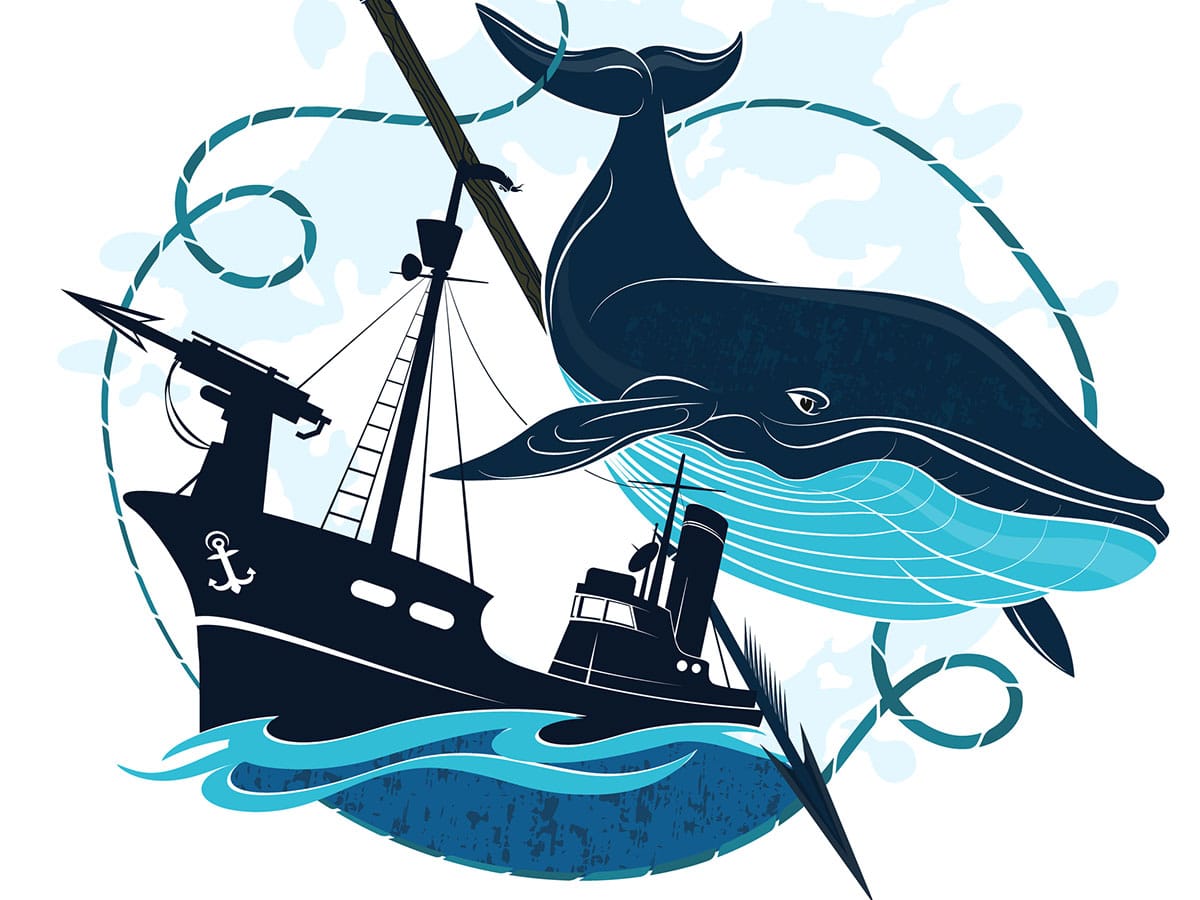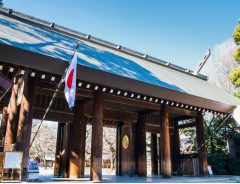
Source: John1179 | © PIXTA
Japanese politicians and whalers ignore criticism as whaling industry is revived
- Tags:
- anti-whaling / Controversy / criticism / whaling
Related Article
-

With Commercial Whaling Resuming in July, Japan Publishes Whale Meat Cookbook
-

The Mysterious Cat-Men Of Japan
-

Japan Urges Foreign Tourists To Stop “Sand Graffiti” On Ancient Dunes
-

Famous Shibuya Crosswalk Halloween Party Falls To Chaos After Truck Flip, Groping, And Up-Skirt Photography
-

Star Wars Fans In Japan Pissed Off With One Piece Promotional Message For The Force Awakens
-

Pokemon Affiliated Studio Outrages Fans After Praying at Controversial Tokyo Shrine


Japan has a long history of whaling, purportedly dating back to the 12th century. Historically, whale meat was a dietary staple. The nutritious and protein-rich meat-fed families and comprised school lunches throughout the nation for centuries. Nevertheless, the practice is considered barbaric by many members of the larger community. After announcing the end of the 30-year-old moratorium of its whaling program, government officials are facing complaints from numerous global leaders and activist groups. Unshaken, whalers are excited to revive the practice they consider a part of their cultural heritage.
The History of Whaling In Japan
Japan's history of whaling dates back to the Jomon period (14,000 – 300 BCE) when stranded whales were harvested for community consumption. Other early accounts of the practice stem from the spirituality and folklore of the Ainu, the native ethnic group of Japan. Yet, the practice did not begin to reflect the modern industry until the use of harpoons in the 12th century.
By the 16th century, whaling was highly organized with open-boat expeditions beginning in the 1570s. As the industry continued to mature throughout the 17th century, fisheries and organized hunting groups developed netting techniques. Hunting groups would spot whales offshore, quickly dispatch, and harvest their catch immediately upon returning to shore. The entire carcass was harvested for meat as well as for making lamp oils, fertilizers, folding fans, and many other products.
The Meiji period of Japan saw the introduction of the expeditious Norwegian-style of whaling. This industrialized technique relied heavily on power-driven vessels, munitions, and other imported expertise.
Whaler Juro Oka benefited greatly during this period. Considered the "father of modern Japanese whaling," he established the first modern Japanese whaling company in 1899. Under his dominance, the industry grew in size.
Although historians and authors had historically lamented the effect of whaling on whale populations, the industry began to face significant blowback during the 20th century. Confrontations erupted with local Japanese communities adversely affected by runoff and other oceanic pollution. Throughout the 1970s and the 1980s, a whaling moratorium was fiercely debated by the international community. Despite political resistance, the government was eventually forced to concede to the ban in 1988 under the threat of United States sanctions.
Whaling Nationalism and Lifting the Moratorium
Like all nations, Japan has a nationalist streak. Writing in the Japan Times, Shaun O'Dwyer suggested that a resurging cultural nostalgia has reignited a Japanese interest in its “unique whaling culinary culture.” Indeed, certain whaling communities and whalers themselves maintain interest in a practice that many considered anachronistic and unethical.
Politicians like Shintaro Maeda, mayor of the whaling city Shimonoseki, have aggressively campaigned for the resurgence. According to the abovementioned Japan Times article, Maeda suggested at a public forum that an “official declaration of whaling history and culture as ‘Japanese Heritage” be made through the Cultural Affairs Agency, a special body of the Ministry of Education, Culture, Sports, Science and Technology that promotes arts and culture. The initiative implies state subsidies be allocated to reinvigorate the industry.
Maeda is not alone. Shigeto Hase, head of the fisheries ministry, has also championed a resurgence of whaling. He told the BBC, "the resumption of commercial whaling has been an ardent wish for whalers across the country." He continued, "the culture and way of life will be passed on to the next generation.
It would appear that the LDP and Prime Minister Shinzo Abe were sensitive to such nostalgia. In December 2018, the Japanese government withdrew from the IWC. Previously limited to scientific research, commercial whaling reconvened in the country in 2019.
Domestic and International Outcry
Unsurprisingly, the decision was met with widespread criticism. Conservation groups and numerous governments were forced to denounce reinvigorating the industry. Australia labeled the decision "regrettable," while others called on the country to realign with international standards. Sam Annesley, executive director at Greenpeace Japan, said the move was "out of step with the international community, let alone the protection needed to safeguard the future of our oceans and these majestic creatures." He also called on the Japanese government to conserve marine ecosystems.
Perhaps such criticisms are easy to support. Prior to 1987, whale meat was widely served in Japanese schools for lunch. Since its removal following the moratorium, the consumption of the meat has dropped precipitously as many now consider it an uncommon delicacy popular with a minority of residents. Reports of mercury contamination makes matters worse.
Observations such as these have inspired a burgeoning sense of domestic activism in Japan. Angered by how the industry distorts the image of their country abroad, opponents like Takayo Yamaguchi have launched online campaigns in defense of marine mammals. Members of Greenpeace, on the other hand, have worked aggressively to blow the whistle on whalers operating under the guise of scientific research.
Activists do this because the Japanese public is sensitively poised when it comes to the legality of the traditional marine stock. As mentioned, interest in whale meat has in general declined. Nevertheless, many residents do not want to appear complicit or be seen as folding to unruly international pressure.
Their unease is justifiable. Actors such as Sea Shepherd and Australian anti-whalers have instigated confrontations with whalers, and perhaps unwittingly, undermined their cause in terms of domestic support. Others still cringe when outlets such as the New York Times suggest that whales are highly intelligent and implies that their slaughter is tantamount to murder.
Nevertheless, criticism comes easily. Celebrities likely Ricky Gervais and Joanna Lumley have spoken out. In an open letter, the two, among other personalities, attempted to shame Japanese politicians. Others still called for an "international whaling intervention" to be staged at G20 summit meetings.
However, Japanese officials appear unsympathetic. Riding a wave of nationalism, they are likely uninterested in denying cultural and nationalist initiatives. After all, whale meat helped the nation survive post-WWII poverty, and the moratorium was essentially a foreign intervention. Folding to foreign intervention again would not serve nationalist sentiment.
Nevertheless, if Japan continues with commercial whaling, it will be forced to endure calls of "barbarism" and "anti-environmentalism" from the larger community.